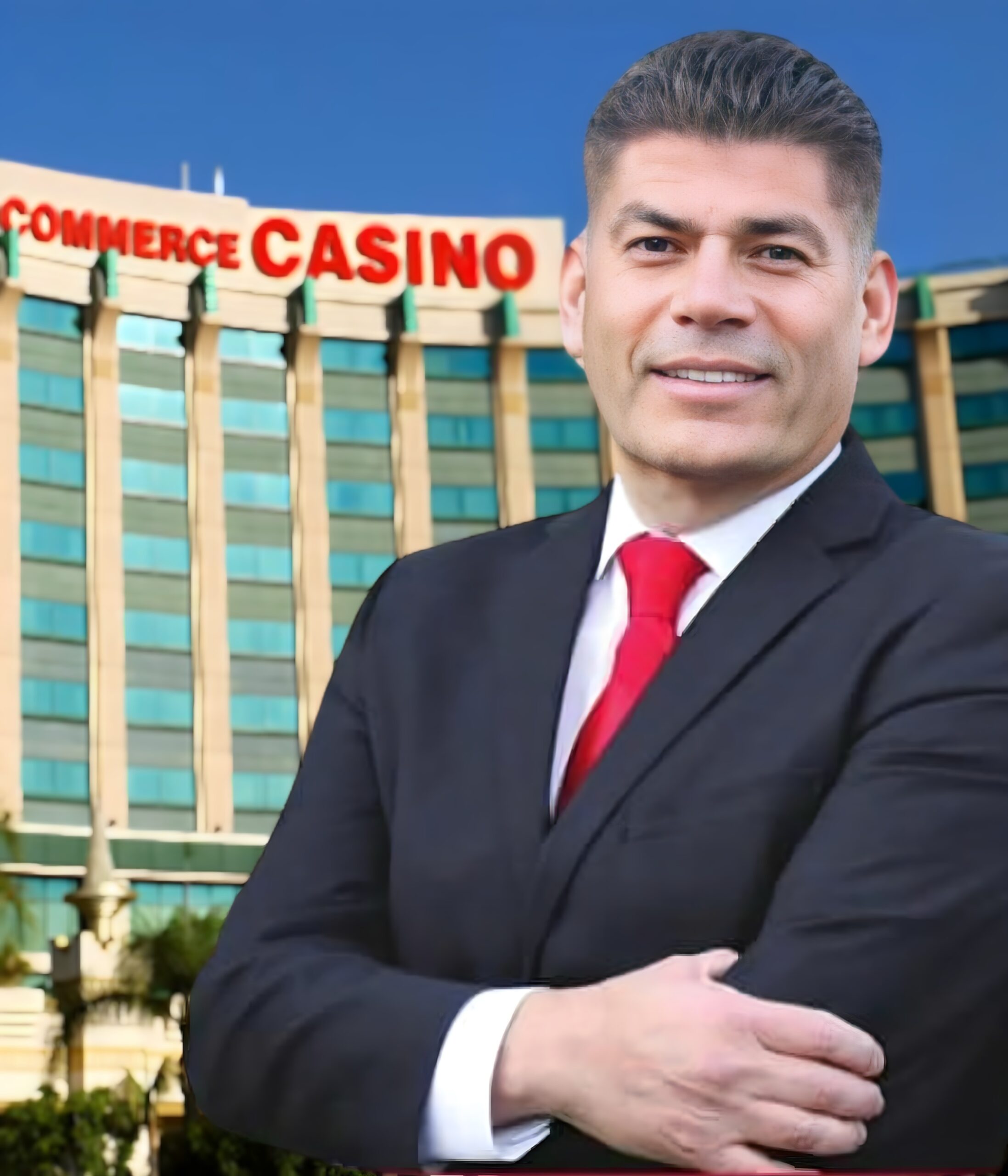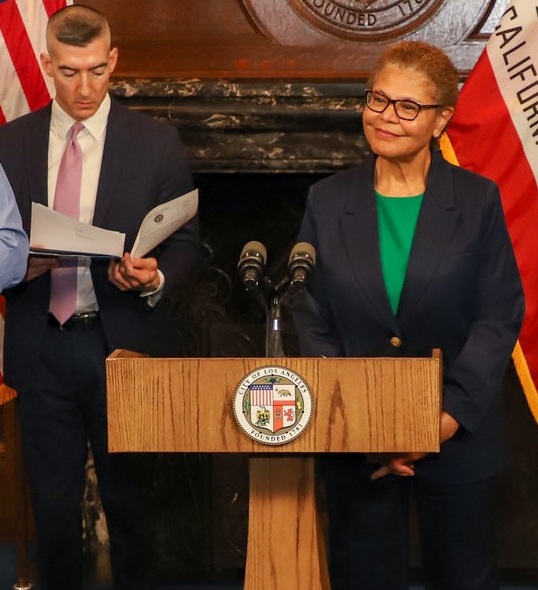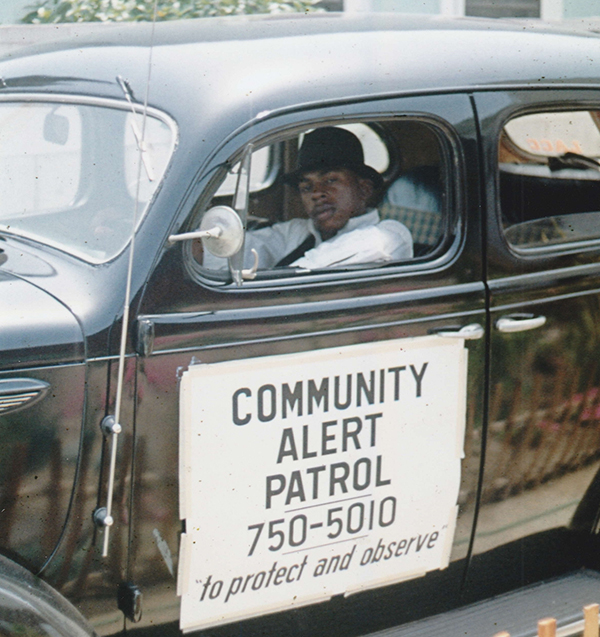Inside the Multimillion-Dollar Battle for Gambling Rights
California’s powerful tribal casinos and their longtime rivals, privately owned gambling halls, are spending huge sums of money to influence lawmakers. The legislative fight could reshape the state’s multi-billion-dollar gambling industry.
BY RYAN SABALOW and JEREMIA KIMELMAN, CalMatters
Powerful tribal casinos and their rivals in California’s multi-billion-dollar gambling industry are fighting an epic battle in the Legislature this year. Millions of dollars in tax revenues for local cities hang in the balance.
And cities also have a lot at stake with the card rooms.
Nearly two thirds of the budget for the city of Hawaiian Gardens and almost half for the city of Commerce, also in Los Angeles County, come from local card rooms.
“Those games, we’re very dependent on here in the city,” said Commerce Mayor Hugo Argumedo. “They provide many of the programs and services that we offer to the residents in our community.”
Pending legislation would let California’s tribes sue their competitors, private card clubs, over their claim that card rooms are violating the tribes’ exclusive rights to Las Vegas-style gambling.
Card rooms have responded with an enormous lobbying blitz.
The Hawaiian Gardens Casino in Los Angeles County spent a staggering $9.1 million on lobbying last year, the second highest amount reported to state regulators. Only the international oil giant, Chevron Corp., spent more.
“If you’re going to attack us and try to take away what we’ve had for decades, then we’ve got to fight back,” said Keith Sharp, the card room’s general counsel. “And so we’re going to spend the money that we need to spend. I mean it’s about survival at this point.”
When the pandemic shut down gaming in Hawaiian Gardens, the city was forced to lay off much of its staff and cut services. Mayor Victor Farfan said it was a sign of what would happen if the card room was no longer able to play the disputed games.
“We’re very, very limited in what we can do,” Farfan said in an interview with CalMatters at Hawaiian Gardens City Hall, the card room visible from the parking lot. “And so we’re fortunate enough to have a revenue source that we do today.”
Tribes, however, argue there are other ways for cities to raise money without infringing on tribes’ gambling rights that California voters enshrined into the state’s constitution.
“They can tax; they can issue bonds; they can do lots of things,” said Bigknife, the attorney general for the Viejas tribe. “All this does is shut down illegal revenue.”
Card rooms frame the issue as a David vs. Goliath fight, since their annual earnings are barely 10% of what tribal governments make from gambling at their 70 tribal casinos. The card rooms also have influential allies in local governments officials who say their cities could go bankrupt if their local gambling hall loses this legislative fight.
The legislation, Senate Bill 549, is backed primarily by a group of Native American tribes that run major casinos. The tribes are among the most influential and biggest spending lobbies in Sacramento. Since 2014, California’s candidates for state office have received about $23.5 million from tribes. That’s more than double what oil companies have given the state’s politicians during the same years.
The state’s card room industry, by comparison, has donated about $3.8 million during the same timeframe.
A group of tribes contend the 80 or so privately-owned gambling halls are illegally offering games such as blackjack, baccarat and pai gow poker, and by doing so, they’ve for years been stealing hundreds of millions of dollars of revenue from historically disenfranchised tribal communities across California.
“It’s not about killing card rooms. It’s not about killing cities. It’s about protecting what’s ours,” Tuari Bigknife, the attorney general for the Viejas Band of Kumeyaay Indians, told CalMatters. His tribe operates a large casino in San Diego County.
SB 549 is pending before the Assembly Governmental Organization Committee, which handles gambling legislation. A hearing hasn’t been scheduled, but those following the bill say it will be heard later in April or in May.
The gambling dispute has roots in the Gold Rush, a time when unscrupulous gambling halls were fleecing miners. In response, the young Legislature prohibited gambling halls from offering games like the kind in Las Vegas where casinos are the “house” and take bets directly.
That prohibition lasted until 2000, when voters approved an initiative that gave tribes the right to negotiate compacts with the state to host certain house-banked casino games.
No one disputes that the privately owned card rooms can offer poker, since players bet against each other. The dispute behind SB 549 involves traditionally house-banked card games, especially blackjack, the most lucrative of the disputed games.
Under the California constitution, the card rooms can’t accept wagers from customers. The card clubs get around the prohibition by contracting with third-party companies that serve the role as the “house” or the “bank.” These third-party employees typically sit at card tables next to the card room employees who deal cards to players. The third-party employee plays no part of the game except to collect players’ bets and pay out winnings. The dealers must periodically offer the opportunity for the players to act as the bank. Almost every customer declines. The card clubs collect fees from each game.
The gambling halls say their business model has been approved by state regulators.
“Every game that (the tribes are) saying is illegal right now, every single one of them has been explicitly approved individually in every card room in the state of California,” Ed Manning, a lobbyist for the card room industry, told lawmakers last summer at the bill’s first hearing.
Tribal casinos, however, call the card room business model an illegal sham, and they have been pleading with state regulators, voters and now lawmakers to end it.
The tribes have repeatedly urged the California Justice Department to step in and prohibit the disputed games. The past three attorneys general have discussed various regulations, but so far none have resolved the politically fraught issue.
Current Attorney General Rob Bonta last year proposed a new set of rules that card rooms say could make it difficult to keep playing the disputed games and tribes say don’t go far enough. The proposed regulations are pending at the department’s Bureau of Gambling Control without a schedule for consideration.
Meanwhile, card rooms and tribal governments have been donating heavily to Bonta since he took office in 2021. Since then the card room industry has donated at least $287,000. Tribes have given at least $222,000, according to OpenSecrets. Bonta said he is considering a campaign for governor in 2026.
Getting no satisfaction from regulators, the tribes tried to sue card rooms for unfair business practices. But California’s courts have ruled that because the tribes are sovereign governments, they don’t have standing to sue under that particular statute.
The tribes next turned to voters. In 2022, the tribes put Proposition 26 on the ballot. The initiative, mainly about sports betting, contained a provision that would have allowed anyone, including tribal members, to file a lawsuit if they believed state gambling laws were being violated and the Department of Justice declined to act.
Voters overwhelmingly rejected the measure after more than $170 million was spent trying to sway them.
Now, the tribes want lawmakers to give them a brief window to sue card rooms to settle their dispute. SB 549 explicitly prohibits the tribes from seeking monetary damages, penalties or attorney’s fees from card rooms. It would only let a court decide whether the gambling halls’ business model is legal.
The tribes contend that if the card rooms are operating legally, they have nothing to fear.
“The card rooms should relish the opportunity to defeat the tribes on this issue and to prove up the legality of what they’re doing,” Bigknife, the Viejas attorney general, told lawmakers at the hearing last summer.
Sharp, the general counsel for the Hawaiian Gardens Casino, said the bigger worry is that if SB 549 passes, the courts would become the de facto gambling regulator. It could force card room operators to seek a court’s permission for any new game they’d like to play or any time they’d want to modify the hundreds of games they already play, he said.
“We’ll be tied up in court forever, so the lawyers will make money,” Sharp said. “That may be the (tribes’) other strategy: … Grind the card rooms down ultimately with legal fees.”
Plus, the card rooms argue that if the tribes are given standing to sue them, it wouldn’t cut both ways. As sovereign governments, the tribes couldn’t be sued by the card rooms.
SB 549 is authored by Fullerton Democratic Sen. Josh Newman, and it has nine co-authors including prominent Democrats, Cecilia Aguiar-Curry, the Assembly’s majority leader, and former Senate President Toni Atkins. The bill’s Republican co-authors include Senator Scott Wilk and Assemblymember Marie Waldron, both former minority leaders in their chambers.
Despite the support for the tribes from some of the Legislature’s most influential members, it’s anyone’s guess whether the bill ends up making it to the governor’s desk. This gambling dispute doesn’t break down along partisan, regional or ideological lines. How lawmakers vote will most likely depend on whether they have a major card room or a tribal casino in their district.
Meanwhile, both sides have been spending millions of dollars to influence lawmakers.
Atkins’ campaign, for instance, has received at least $215,000 from tribes since 2014.
“SB 549 allows tribes to bring their concerns about possible infringement of their constitutional rights to the courts, where this issue can be addressed by an impartial judicial system,” Atkins told CalMatters in an emailed statement.
“After a history fraught with injustice, allowing tribes access to the courts to get an answer is a step worth taking.”
Ryan Sabalow is a Digital Democracy reporter for CalMatters. Jeremia is a data journalist who uses code and data to make policy and politicians easier to understand.
CalMatters.org is a nonprofit, nonpartisan media venture explaining California policies and politics. Published with permission of CalMatters












